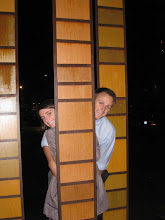Folk remedies may be one of the most significant road blocks to my work as a health education professional in this country. Some of my favorite beliefs include:
Drinking water makes you fat (very prevalent with women).
Headache? Place a tight headband around head for 30 minutes.
Wash your hair with kerosene for lice infestations.
Potato slices clear up varicose veins and also help in cases of burns or eye pain.
Cigarette smoking can reduce headache.
Drink a spoonful of vinegar before sleep in order to loose weight.
Salt can be used to clean teeth/if you have a cavity place cheese in it (or vodka on cotton or coffee or smoke a cigarette).
If a child is choking, rub/massage the space between the eyes.
I have experienced a few folk remedies and so far they have proven effective. For example, when I visited my new village I got mosquito bites on my arms and legs. I was sitting at the kitchen table one morning scratching away when all of a sudden I was being rubbed down with a vodka-soaked cottonball. Vodka is quite the investment in this country. Not only useful for toasts, people believe a vodka compress will cure a cough, clean wounds, cure headache and stomach problems and is generally good for the spirit. I’m sure it was the alcohol took away the itch in my bites.
A few days ago I asked my host mother, Anahit, what she loved most about our village. I felt like this was a pretty significant achievement because it means that I can ask questions (in this new language) in the form of “appreciative inquiry”. The Peace Corps encourages us to use this strategy for intentional change. Based on the Constructionist Principle (which says that we construct realities based on our previous experience, so our knowledge and the destiny of the system are interwoven), the Principle of Simultaneity (that inquiry and change are simultaneous) and the Poetic Principle (the story of the system is constantly being co-authored and is open to infinite interpretations), appreciative inquiry identifies the best of ‘what is’ to pursue future dreams and possibilities of ‘what could be’. The Peace Corps tells us that this strategy can be used in mission statement/vision development, strategic planning, organizational/system redesign, service enhancement, group culture change (which I’m hoping means smoking cessation), leadership development, civic/community development, appraisals and performance management and individual coaching.
Anahit said that she was most proud of her garden, but then she thought about it for a minute and realized that she also loved her family and her neighbors. It was pretty awesome to see her light up with pride in her small community. She started talking about the people in the village, and as a result of my simple question she began to discover the most valuable resource Armenia (or any organization for that matter) has to offer: its people.
Small conversations like this are really the motivating factor behind my language improvement right now. It’s a one step forward two steps back situation because the next day in class I gave a presentation on my apartment in America and I said that across the hall from my bedroom there is a swimming pool (instead of a bathroom). You have to have a good sense of humor to join the Peace Corps!
Introducing Emelyn Ruth Bornstein
10 years ago

3 comments:
Sarah,
Wow, a swimming pool across from your bedroom...now that would be nice. I agree with you that people are what's important. Good luck with your move next week and congratulations Sarah Zaenger "official" PCV 14!
Love you and miss you,
Mom
To anyone who may be looking for a more interesting interpretation of our experience in Armenia I direct you to Dominic's blog. He's much better at describing (in a humorous way) some of what we experience here:
http://dominicinarmenia.blogspot.com/
Hi Sarah,
I like those folk remedies and I took note; THere are lot of things to xplore in this magnific world.
Unfortunately, Peace Corps may be more useful in Lebanon than in Armenia, God help the lebanese people.
Take care Sarah.
Mouhcine
Post a Comment